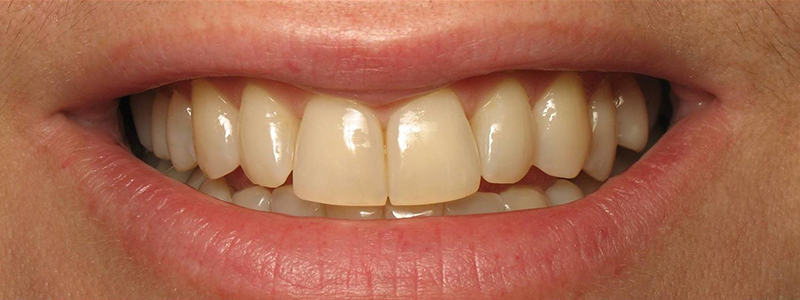Fluoride Treatment

Fluoride is a characteristic mineral that strengthens teeth and prevents dental cavities.
Fluoride protects the sound tooth enamel and battles the microscopic organisms and bacteria that can damage the teeth and gums.
Healthy gums and teeth are essential to your child’s general well being. Once your kid has a tooth, our pediatrician might suggest that your kid get fluoride treatment to prevent formation of any caries and in turn take optimum care of your oral health.
Fluoride medicines are regularly proficient medicines containing a high percentage of fluoride that a dental specialist or hygienist will apply to an individual’s teeth.
How does a Fluoride Treatment benefit you?
Fluoride treatment is highly effective against tooth decay by making the tooth more impervious to acid attack and sugars in the mouth. It has also been known to reverse minor pit and fissure caries post application. In youngsters under 6 years old, fluoride is a preventative oral healthcare measure towards improvement of life of the teeth, making it strong and resilient against any demineralization of the teeth.
Long term use of Fluoride has several benefits for the teeth:
- decrease the danger of cavities
- slowdown the spread of cavities
- postpone the requirement for costly dental work
- Prolong the life of milk/permanent teeth
- Saves time and money from expensive dental procedures
- Prevention from gum infections
- Less chances of toothache due to cavity free mouth
- Avoiding any premature loss of tooth structure
1. What amount of fluoride or fluoride treatments do you really need?
It is prescribed by most dental specialists to seek a fluoride treatment every 3-6 months, or a year. Once a complete consultation for your Child is done and his oral wellbeing is determined, our dental specialist will suggest the best treatment plan. Assuming that you’re at high danger for decay, your dental specialist may likewise recommend an additional fluoride wash or gel to utilize consistently at home.
2. What are the advantages of fluoride treatment?
Fluoride works by reestablishing minerals to tooth surfaces where microbes might have disintegrated the layer of tooth. It can likewise suppress the development of damaging bacteria and further prevent cavities from forming. Fluoride can’t eliminate tooth decay however, it can make your tooth strong and resilient and more durable to cavity causing bacteria in the mouth.
3. Can Fluoride treatment be done for both Adults and Children?
Fluoride benefits both, the children and the grown-ups. The sooner a child is exposed to fluoride treatment, the less chances of them in the future to develop cavities. Children and adolescents who have undergone fluoride treatments for at least a year are likely to have lesser tooth decay and cavities.
4. What are the side effects to expect after fluoride treatment?
Like any medicine, an excessive amount of fluoride can cause negative intricacies. You can get an excess of fluoride by coincidentally ingesting too much or by being endorsed a portion that is excessively high. Fluoride poisoning is exceptionally uncommon today, however persistent overexposure might cause tooth discoloration and other effects in children and needs to be carefully monitored.
5. When Is Fluoride Intake Most Critical?
Infants and children between the ages of 6 months and 16 years must be delivered a flouride treatment. This is the time span during which the essential and extremely durable teeth come in. Nonetheless, grown-ups benefit from fluoride, as well.
6. Is Fluoride Varnish Safe?
Fluoride stain is protected and utilized by dental specialists and specialists all around the world . Just a limited quantity is utilized, and scarcely any fluoride is gulped. It is immediately applied and solidified. It clears off on its own after brushing post treatment in a few hours.
7. How is Fluoride Varnish Put on the Teeth?
Fluoride stain is painted on the top and sides of every tooth with a little brush. It is sticky on application but solidifies once it interacts with saliva in your mouth. Your child might feel the solidified stain with his tongue yet can not lick the stain off.
8. Is Fluoride application agonizing?
It doesn’t hurt when the stain is applied. In any case, small kids might cry before or during the procedure due to anxiety which can be taken care of prior to treatment. Luckily, the entire procedure should not take too long and can be finished in a short duration appointment.
9. How Do I Care for My Child's Teeth After Fluoride Varnish is Applied?
Your kid can eat and drink sometime after the procedure is complete and can be checked with our dental specialist post treatment completion. Give your child soft food or food that is not too hot or liquid food.Try not to clean or floss teeth for somewhere around 4 to 6 hours post fluoride application. Your Child’s pediatric dentist might advise you to delay until the following morning to brush or floss.
Take the following care to get the most benefit out of Fluoride application.
- Leave varnish on your teeth.
- Don’t brush or floss for at least 4 hours.
- Avoid hard, hot or sticky foods while varnish is on the teeth (4 hours).
- Do not use fluoridated toothpaste on the same day.
- For maximum results, do not brush teeth until the next day.
- A thorough brushing will easily remove any remaining varnish after completion of treatment.
Ranges around NPR 2500

BOOK AN APPOINTMENT






